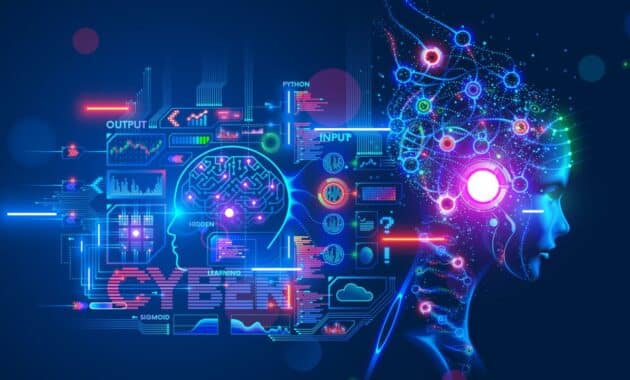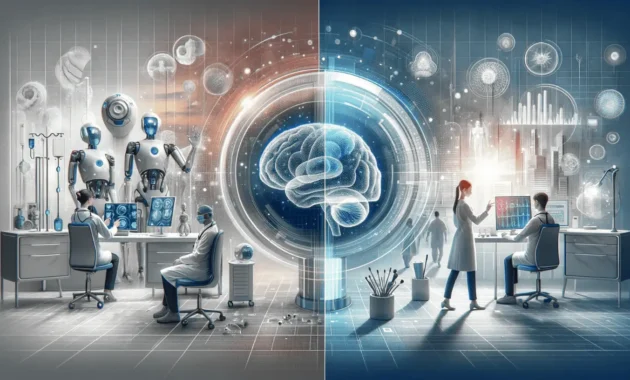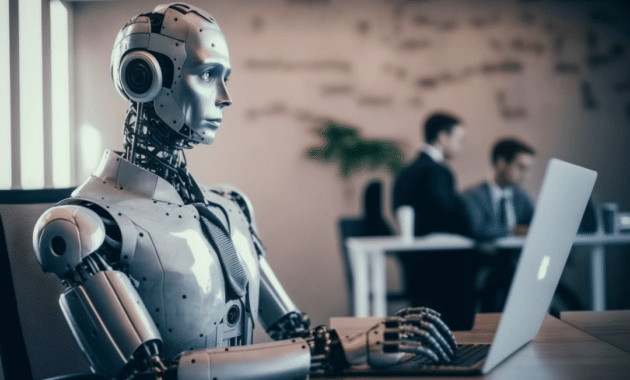Latest Advancements In AI Technology has become one of the most transformative forces in the modern world. From revolutionizing industries such as healthcare and finance to changing the way we interact with technology, AI is constantly evolving. Over the past decade, AI has progressed from a theoretical concept into an integral part of everyday life. In this article, we will explore the latest advancements in AI technology, their applications, and what the future holds for AI in various sectors.
Latest Advancements In Artificial Intelligence Technology
1. The Evolution of Artificial Intelligence
Artificial Intelligence has a rich history that spans several decades, starting with the vision of Alan Turing and his famous Turing Test, which aimed to determine whether machines could exhibit intelligent behavior. However, the recent surge in AI advancements can be traced back to the rapid development of computing power, big data, and advanced algorithms.
- Early Beginnings of AI: In the 1950s and 60s, AI research focused on rule-based systems and symbolic reasoning. Early pioneers like John McCarthy and Marvin Minsky laid the foundation for machine learning, but progress was slow due to limited computational power.
- The Rise of Machine Learning: In the late 1990s and 2000s, the advent of machine learning algorithms enabled computers to analyze vast amounts of data and recognize patterns. This laid the groundwork for more sophisticated AI systems.
- Deep Learning and Neural Networks: Today, deep learning algorithms, inspired by the human brain’s neural networks, are responsible for the majority of AI advancements. These networks can process enormous datasets and make decisions with impressive accuracy.
2. Key Advancements in Artificial Intelligence Technology

A. Natural Language Processing (NLP)
Natural Language Processing (NLP) has made incredible strides in recent years, enabling machines to understand, interpret, and respond to human language. With the advent of sophisticated models like OpenAI’s GPT-3 and Google’s BERT, AI has become capable of generating human-like text, translating languages, and even summarizing content.
- AI-powered Chatbots: Customer service has been revolutionized by AI-driven chatbots capable of handling complex inquiries and providing personalized support.
- Voice Assistants: Virtual assistants like Siri, Alexa, and Google Assistant have evolved from basic task-performing agents into intelligent systems capable of performing intricate tasks and understanding context.
B. Computer Vision
AI-driven computer vision technology enables machines to “see” and interpret the world around them. This technology has applications in industries ranging from automotive to healthcare.
- Autonomous Vehicles: Self-driving cars utilize computer vision to navigate roads, identify obstacles, and make split-second decisions.
- Healthcare Imaging: In healthcare, AI is being used to analyze medical images, identifying conditions such as tumors, fractures, and other anomalies with greater precision than human doctors.
C. Robotics and Automation
Robotics has seen significant improvements due to AI advancements. Machines are now capable of performing complex tasks autonomously, from industrial manufacturing to personal assistance.
- Robotic Process Automation (RPA): AI-powered bots are increasingly used to automate repetitive tasks in industries such as finance, logistics, and customer service.
- Collaborative Robots (Cobots): Cobots work alongside humans in industries like manufacturing, improving efficiency while ensuring safety.
D. Generative AI
Generative AI is one of the most exciting advancements in the field. Using models like Generative Adversarial Networks (GANs), AI can now create entirely new content, from art and music to realistic images and videos.
- Art and Creativity: AI is being used by artists to generate unique artwork and music compositions. Artists are now collaborating with AI systems to explore creative boundaries.
- Synthetic Media: Deepfakes are a controversial use of AI in the media industry, where AI creates realistic but fake videos and images. While controversial, this technology has applications in entertainment, gaming, and advertising.
E. AI in Healthcare

AI is transforming healthcare by making diagnoses more accurate, improving treatment plans, and even discovering new drugs.
- Predictive Healthcare: AI systems can analyze patient data to predict health outcomes, enabling preventive care and personalized treatment plans.
- Drug Discovery: AI algorithms are helping researchers identify potential drug candidates, significantly speeding up the discovery process.
3. AI in Various Industries
A. AI in Finance
Artificial Intelligence is revolutionizing the finance industry by automating tasks, predicting market trends, and improving decision-making.
- Algorithmic Trading: AI models analyze market data in real-time, making faster and more accurate trading decisions.
- Fraud Detection: AI systems monitor transactions for unusual patterns, identifying fraudulent activity in real-time.
B. AI in Education
The education sector is also benefiting from AI technologies. Personalized learning experiences, automated grading, and virtual classrooms are becoming increasingly common.
- Adaptive Learning: AI systems adapt lessons to the learning pace and style of individual students, improving outcomes.
- AI Tutors: AI-driven tutoring platforms provide personalized help to students, assisting with everything from mathematics to languages.
C. AI in Retail
AI is enhancing the retail industry by improving inventory management, personalizing shopping experiences, and optimizing pricing strategies.
- Personalized Shopping: AI algorithms analyze customer behavior to recommend products, increasing sales and customer satisfaction.
- Supply Chain Optimization: AI predicts demand patterns, allowing retailers to manage their inventory more efficiently.
4. The Ethical Considerations of AI

As AI technology continues to evolve, it brings with it a host of ethical challenges and concerns. The potential for job displacement, privacy issues, and the need for transparent AI systems are major concerns that need to be addressed.
- Job Displacement: AI is automating many tasks traditionally performed by humans, leading to concerns about unemployment and inequality.
- Bias in AI: AI systems can inherit biases from the data they are trained on, leading to unfair or discriminatory outcomes.
- AI Regulation: Governments and organizations are debating the need for regulations to ensure AI technologies are used ethically and responsibly.
5. The Future of AI
The future of AI holds incredible promise, with advancements in areas like quantum computing, AI-powered creativity, and human-AI collaboration. Here are some of the key trends to watch for in the future of AI:
- Quantum Computing and AI: The development of quantum computing could significantly boost AI capabilities, allowing it to solve problems that were previously thought to be unsolvable.
- AI-Powered Creativity: As AI systems continue to improve, they will become more adept at assisting in creative endeavors, including writing, filmmaking, and design.
- Human-AI Collaboration: The future of AI is likely to be one of collaboration between humans and machines, where AI assists humans in making better decisions, solving complex problems, and creating new innovations.
Also Read : What Role Does Augmented Intelligence Play In Automating Tasks?
Conclusion
Artificial Intelligence is transforming the world at an unprecedented pace. The latest advancements in AI technology are reshaping industries, improving our daily lives, and unlocking new possibilities. From healthcare and education to finance and entertainment, AI is poised to have a profound impact on nearly every aspect of society. As we continue to develop and refine AI, it’s important to navigate its ethical implications and ensure that the technology benefits all of humanity.
FAQs
1. What are the most recent advancements in artificial intelligence technology?
Recent advancements in AI include the development of more powerful machine learning models like GPT-3 and Google’s BERT for natural language processing (NLP), breakthroughs in computer vision for self-driving cars, AI-powered drug discovery, and generative AI like deepfakes and AI art creation. Additionally, there is growing integration of AI in healthcare, robotics, and business operations.
2. How has artificial intelligence impacted industries like healthcare and finance?
In healthcare, AI has improved diagnostic accuracy, personalized treatment plans, and drug discovery. In finance, AI is used for algorithmic trading, fraud detection, and improving customer service with AI-powered chatbots. Both industries benefit from AI’s ability to analyze vast amounts of data quickly and efficiently.
3. How does natural language processing (NLP) work in artificial intelligence?
NLP enables machines to understand, interpret, and generate human language. It works through algorithms and models like GPT-3 and BERT, which analyze patterns in text to generate responses, translate languages, and summarize content. NLP applications include chatbots, voice assistants, sentiment analysis, and language translation.
4. What role does AI play in the development of autonomous vehicles?
AI is crucial for autonomous vehicles as it allows them to interpret sensory data, make real-time decisions, and navigate roads safely. Through computer vision and machine learning, self-driving cars can detect obstacles, follow traffic signals, and respond to dynamic environments without human intervention.
5. Can AI creativity, like AI-generated art, replace human artists?
While AI can generate impressive art, music, and even literature, it is seen more as a tool for human creativity rather than a replacement. Artists are using AI to enhance their work, experiment with new forms, and push creative boundaries. AI-generated content adds value by offering novel insights and possibilities, but human intuition and emotion remain central to the creative process.
6. What are the ethical concerns surrounding artificial intelligence?
Ethical concerns surrounding AI include biases in machine learning algorithms, the potential for job displacement, privacy issues, and the lack of transparency in decision-making. Ensuring that AI is used responsibly and ethically is vital, with ongoing efforts to create regulations and frameworks to address these challenges.
7. How does quantum computing impact the future of artificial intelligence?
Quantum computing promises to significantly accelerate AI by solving complex problems much faster than traditional computers. It has the potential to enhance machine learning algorithms, improve optimization, and enable AI to handle problems that are currently beyond its reach, such as simulating molecular structures for drug development.




